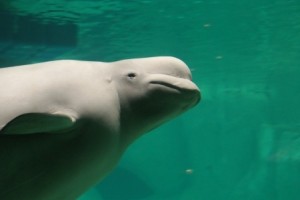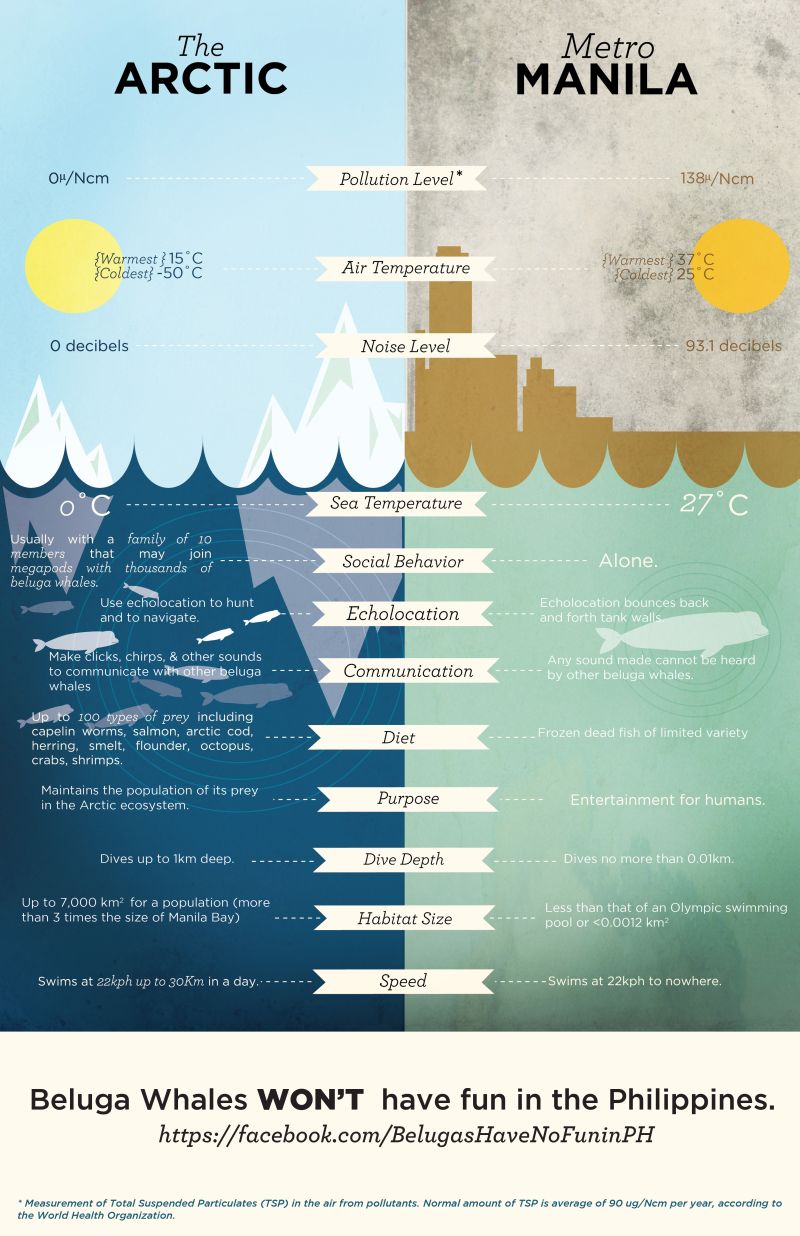Should Manila Ocean Park be allowed to import Beluga whales?
MANILA, Philippines–As far as the National Museum and animal rights activists are concerned, the Manila Ocean Park (MOP) should not be allowed to import Beluga whales for its theme park.
The National Museum supports the junking of the MOP’s import application, it said in a letter to Earth Island Institute, one of the groups criticizing the oceanarium.
“Although the Manila Ocean Park will do their best to ensure the best care and safety of the Beluga whales to be imported into the Philippines, we cannot deny the truth that these animals thrive in very cold environments, specifically the arctic, and the sub-arctic regions of the world,” National Museum Director Jeremy Barns said in the letter, dated December 3.
Barns pointed out that importing Beluga whales into a tropical country like the Philippines will “compromise their survival which may lead to their cruel death.”
Sea Life Park
In January this year, the MOP wrote to the Bureau of Fisheries and Aquatic Resources (BFAR), asking for import permits for Beluga whales, bottlenose dolphins, South American sea lions and Harbor seals.
Article continues after this advertisementMOP vice president for sales and marketing Armi Cortes said the trade of the requested sea animals are allowed, as long as appropriate permits are issued.
Article continues after this advertisementCortes said the sea creatures will be part of MOP’s “Sea Life Park,” which will feature a 900-seater all-weather stadium and a saltwater pool.
Near threatened
According to the World Wide Fund for Nature (WWF), Beluga whales are considered “near threatened” and only have a population of around 150,000 worldwide.
Barns pointed out that the Beluga whale species, in addition to being considered as “near threatened” based on the Red List of the International Union for the Conservation of Nature (IUCN), is also listed in the appendix of the Convention on International Trade in Endangered Species of Wild Fauna and Flora (CITES) as a specie that is “not necessarily threatened extinction, but in which trade must be controlled in order to avoid utilization incompatible with their survival.”
“As a signatory to CITES, it is the responsibility of the Philippines to ensure that trade does not result in the depletion or extinction of the species,” he added.
No consultation?
The Earth Island Institute pointed out that the Wildlife Resources Conservation and Protection Act (Republic Act No. 9147) designates the UP Marine Science Institute, Silliman University, University of Visayas and the National Museum as CITES scientific authorities or technical experts.
Earth Island Institute regional director Trixie Concepcion said the BFAR’s process regarding import application is not transparent. She said none of the qualified experts have been consulted by the BFAR, despite the Wildlife Act stating that it should evaluate the “best available information or scientific data showing that the activity is, or for a purpose, not detrimental to the survival of the species or subspecies.”
Concepcion said that in the US, the Georgia Aquarium’s application to import Beluga whales from Russia was rejected “because of the sustainability issue of harvesting wild belugas for commercial purposes.”
“Just this November in Quito, Equador, the United Nations, through the Convention on the Conservation of Migratory Species (CMS) highlighted the cultural capabilities of dolphins and whales and passed a resolution to end the capture of wild dolphins and whales for commercial purposes. The Philippines is a party to the CMS,” she added.
Concepcion said their group is urging the government to support global conservation of animals and reject the importation of not only Beluga whales but also bottlenose dolphins, seals and sea lions.
As of posting time, the Earth Island Institute’s petition at Change.org has received 13,351 signatures.
INQUIRER.net contacted Manila Ocean Park last week for their reaction but Cortes said they have yet to finalize their statement on the issue.
RELATED STORY

